Rozana Montiel *1972, Mexican architect
(Deutsch siehe unten)
As a lecturer, researcher and architect Montiel is searching for ways to use simple interventions, projects or buildings to create and strengthen urban communities. She does this in particular in under-privileged neighbourhoods in Mexican cities, first analyzing the location, assessing its potential, and including the inhabitants in the deliberations.
In 2012, the Mexican government formed a broad coalition of ministries and organizations to combat the sprawl of cities and their immense infrastructure problems. Another goal was to improve housing quality at all levels. A central role was played here by the state-subsidized institute Infonavit (Instituto del Fondo Nacional de la Vivienda para los Trabajadores), which awards almost three quarters of all mortgages for welfare housing. Infanovit authored a study of the socio-economic conditions in 400 welfare housing estates. The study served as the basis for commissioning architects with corresponding projects.
Rozana Montiel Estudio de Arquitectura realized four projects for Infanovit: Saloncito (Mexico City), Común-unidad (Mexico City), Cancha (Veracruz) and Fresnillo Playground (Zacatecas). Montiel relied on the method she had developed and published in HU Common Spaces in Housing Units. It is a kind of glossary that attempts to do justice to the multilayered reality of welfare housing estates. These are characterized by informal usages by street vendors, improvised stalls, annexes and by the socially weaker be squeezed out of public spaces.
For Cancha (2016) she conceived an open sports hall for
sporting activities, but also as a meeting point. Between the
pillars of the hall she integrated a multi-purpose spatial program of library, toilets, playground, hammocks, community rooms, etc.
Cancha/ Court by Rozana Montiel and Alin V. Wallach
Location: Lagos de Puente Moreno, Veracruz
Program: Indoor court and plaza
Collaborator: Alejandro Aparicio
Built: 2015-2016
Photographs: Sandra Pereznieto
Project in collaboration with INFONAVIT
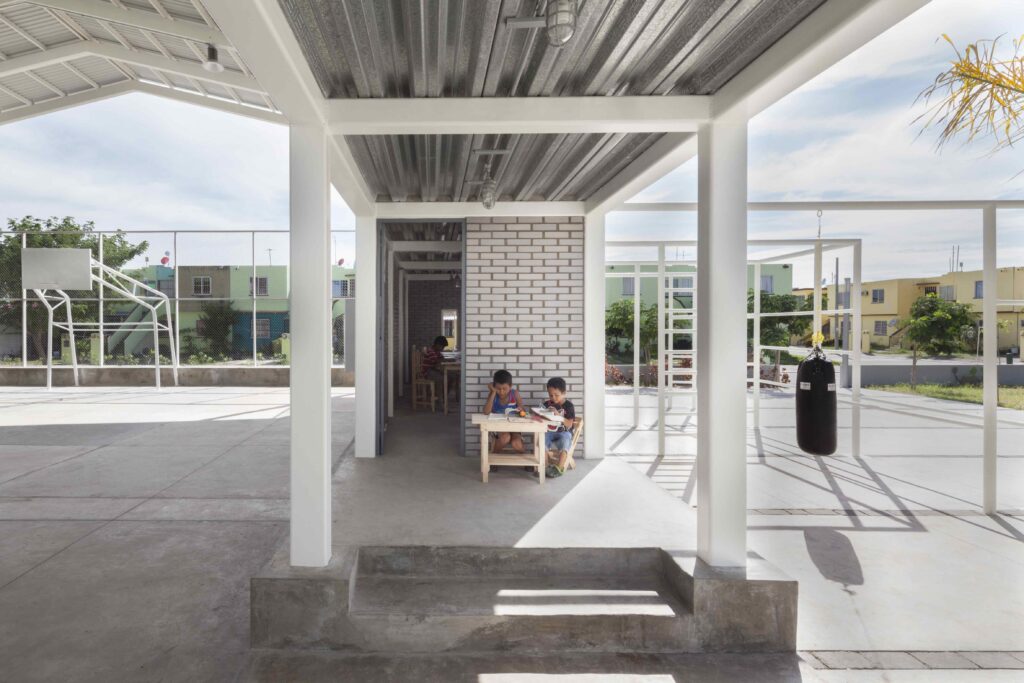
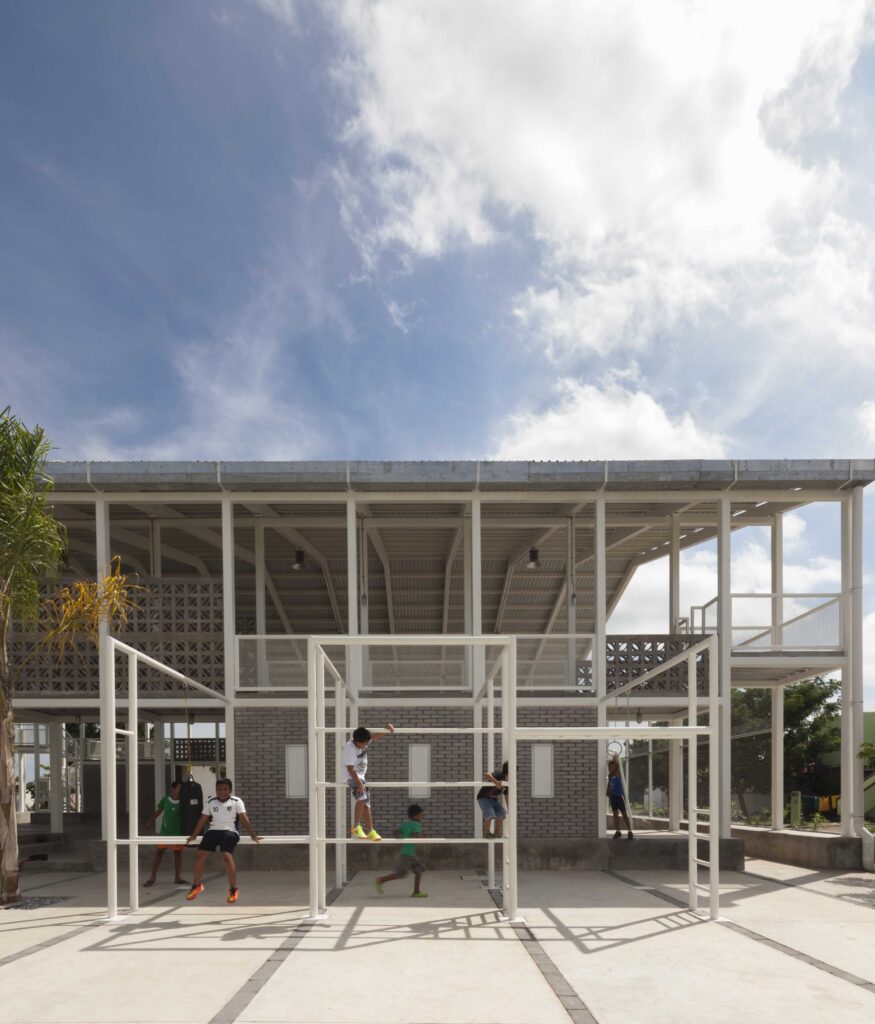
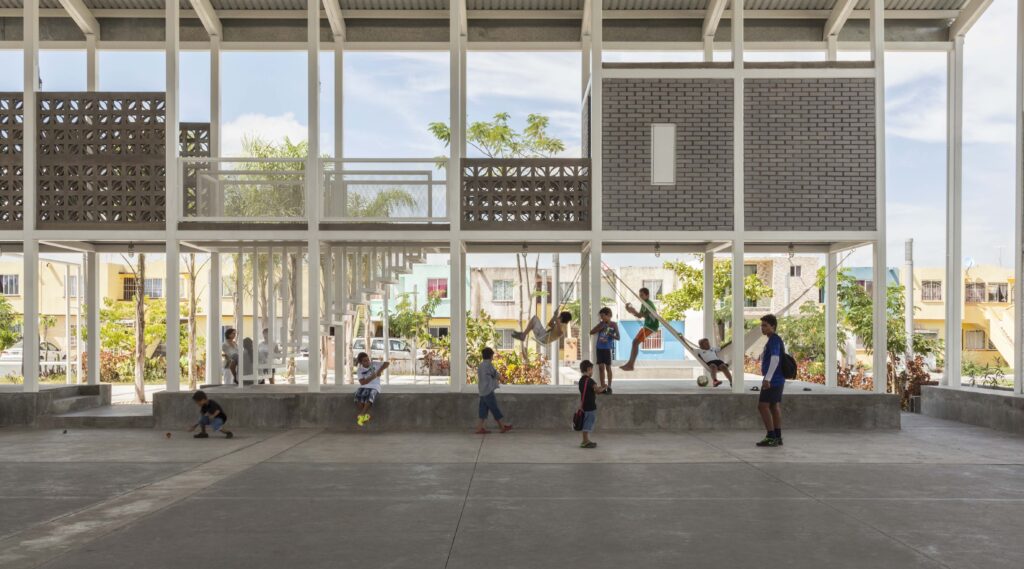
For Común-unidad (2016) she had fences removed that fragment space and render it inaccessible. In their place a large free area beneath trees arose, which is rearranged using horizontal grid structures. At the same time, these serve as play zones and become a meeting point for all manner of user and age groups.
Común-unidad: Rozana Montiel and Alin V. Wallach
Location: Unidad Habitacional San Pablo Xalpa, Delegación Azcapotzalco, Mexico City
Program: Public Space Rehabilitation
Collaborators: Cecilia Brañas, Diana León, Valery Michalon, Luis Galán
Year of construction: 2015-2016
Photographs: Sandra Pereznieto
Project in collaboration with INFONAVIT
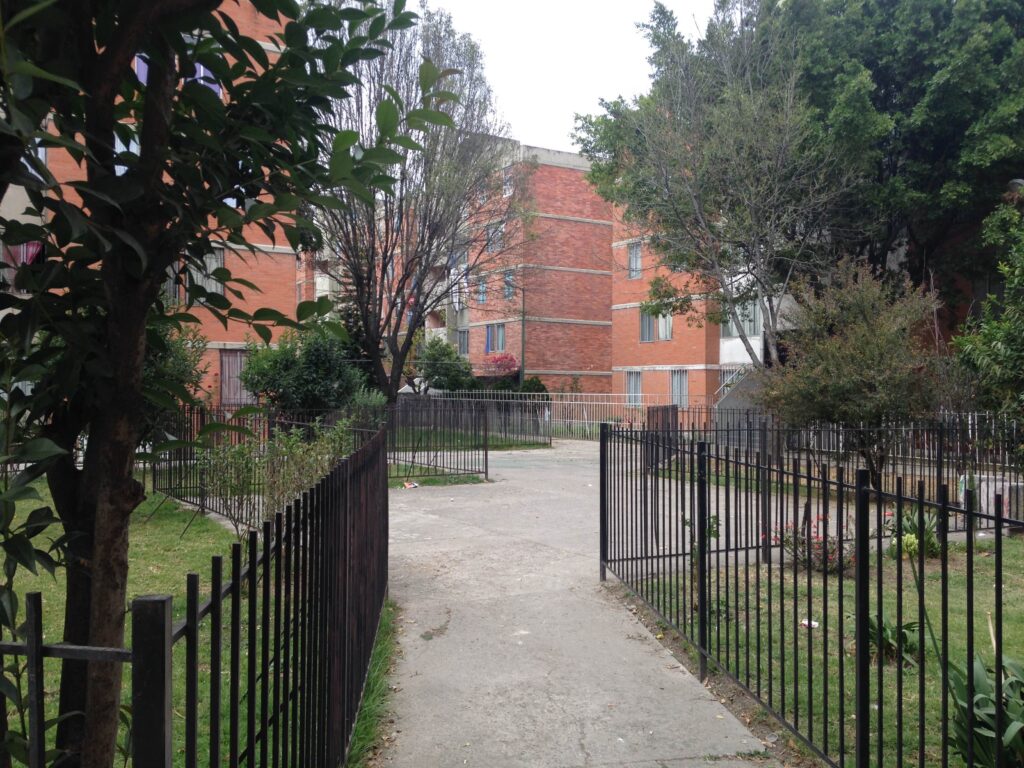
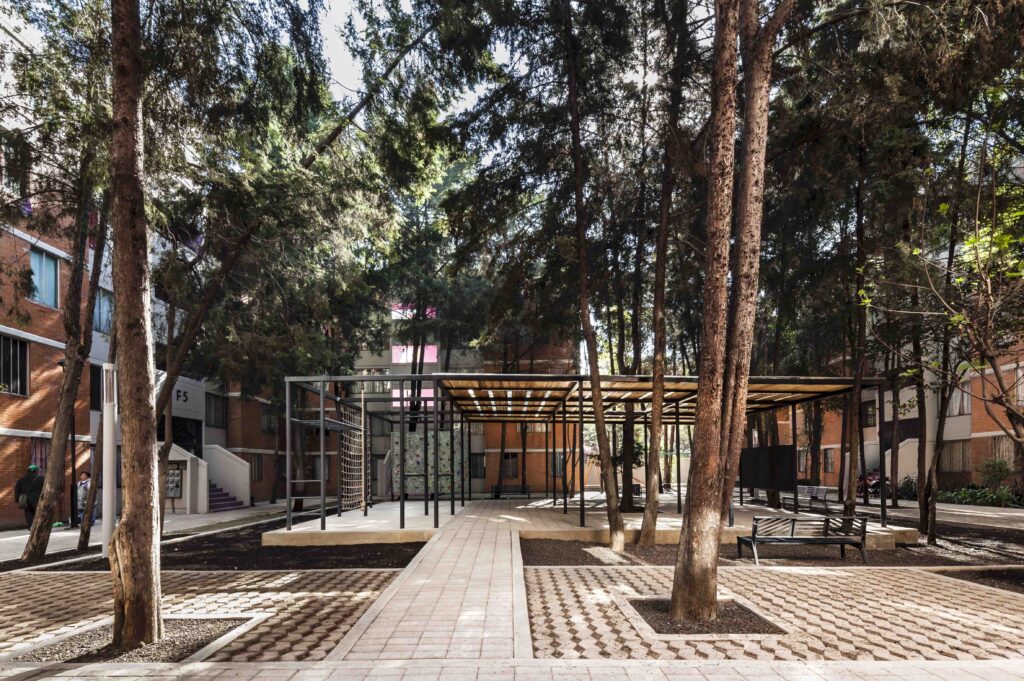
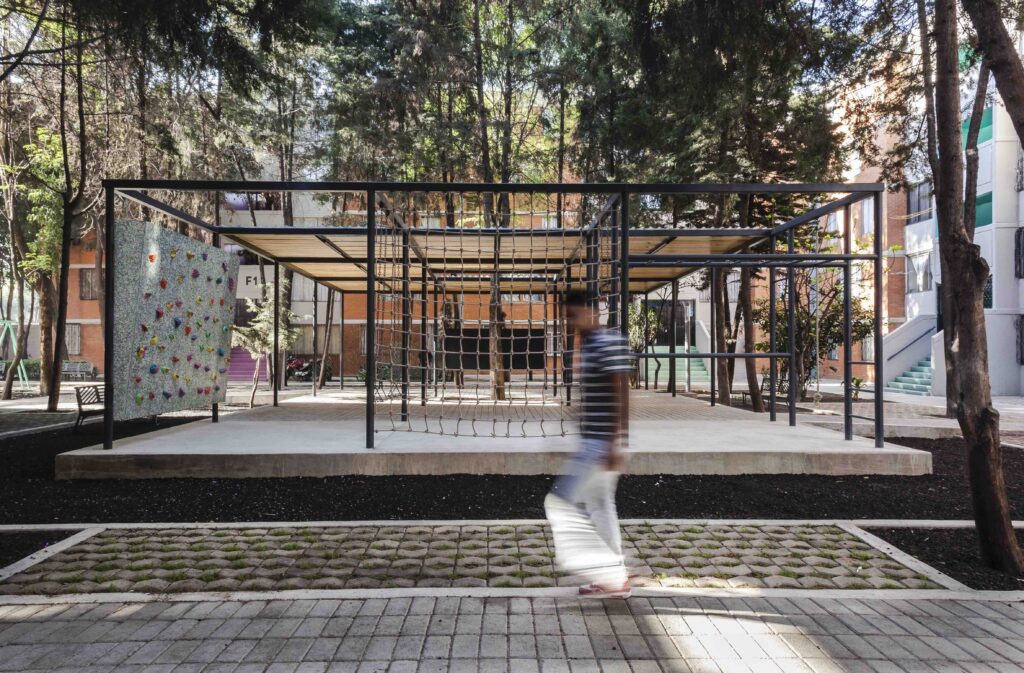
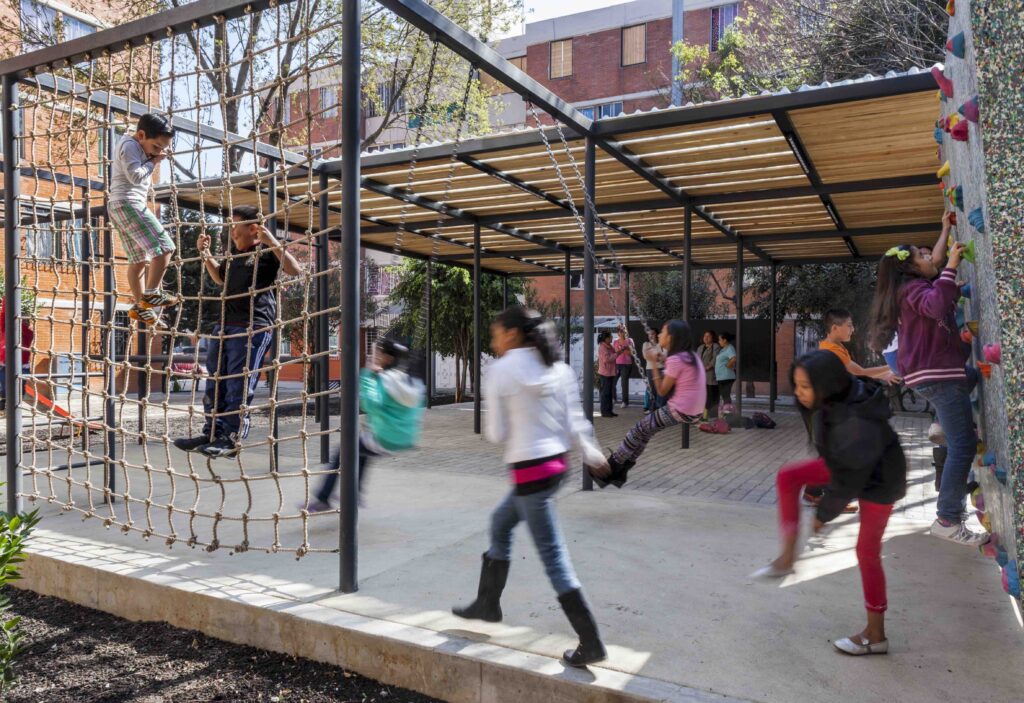
For Fresnillo Playground (2017) she transformed an ugly paved sewage canal that cut across the quarter into a vibrant meeting place. Steep canal walls morph into slides while stairs andbouncing boulders create new links and forms of mobility.
Fresnillo Playground by Rozana Montiel and Alin V. Wallach
Location: Manuel M. Ponce Housing Unit, Zacatecas, Mexico.
Program: National Rehabilitation Program Room Units together with the Comprehensive Strategy for Social and Urban Regeneration
Colaboradores: Hortense Blanchard, Silvia Mejía, Alejandro Aparicio, Amaranta Guzmán, Ana Sofía Quirós, Caroline Figaro, Ombeline De Laage, Cristobal Pliego
Year of construction: 2018
Project in collaboration with INFONAVIT
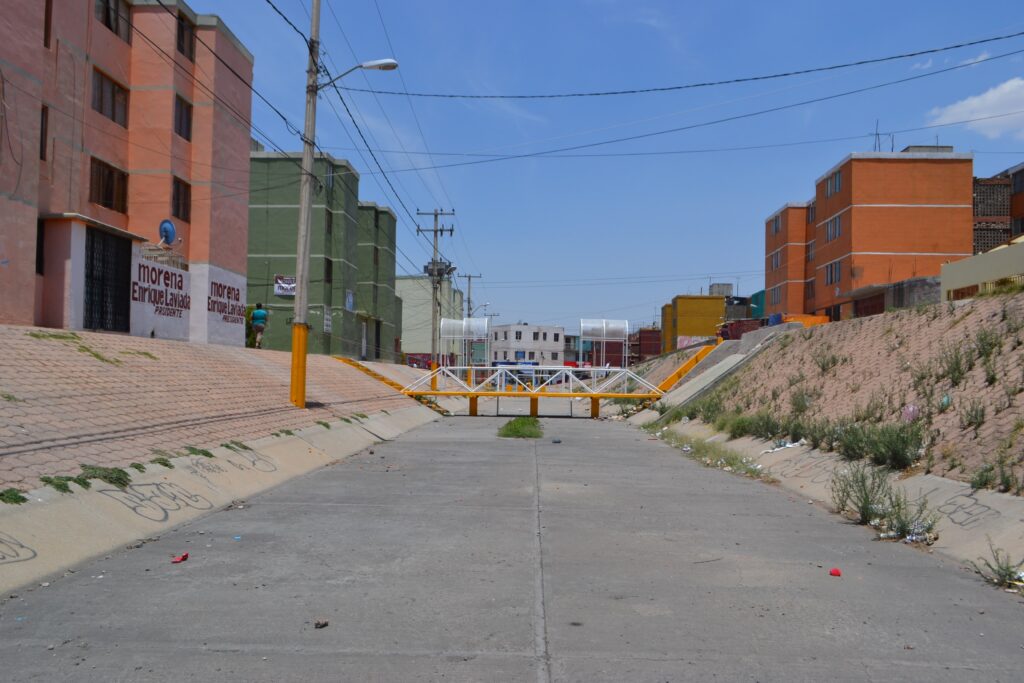
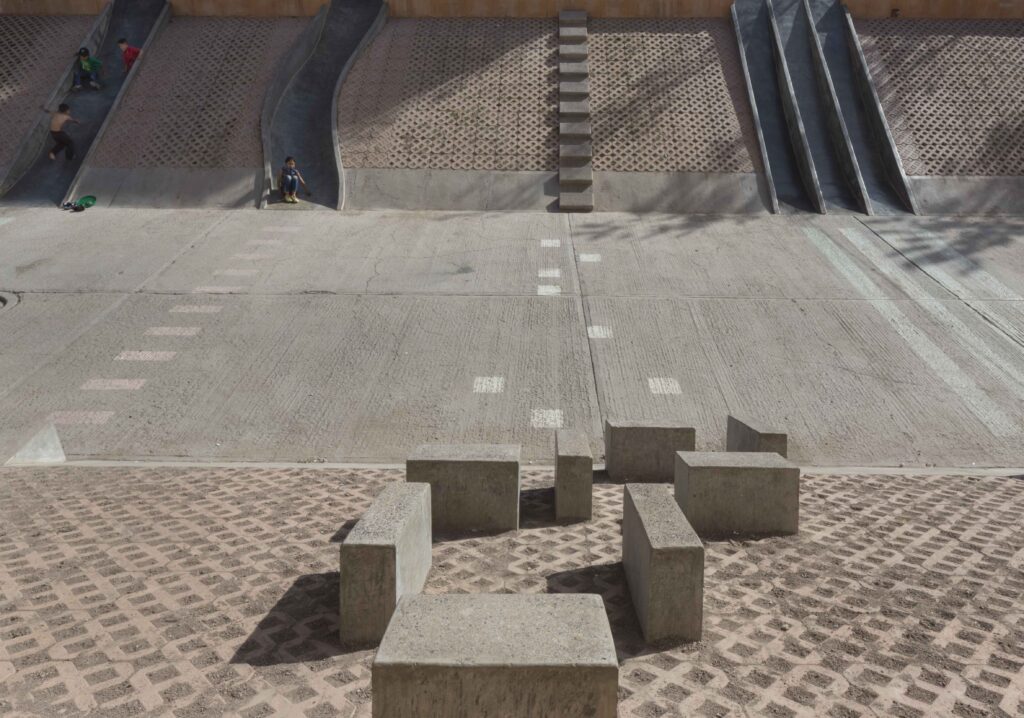
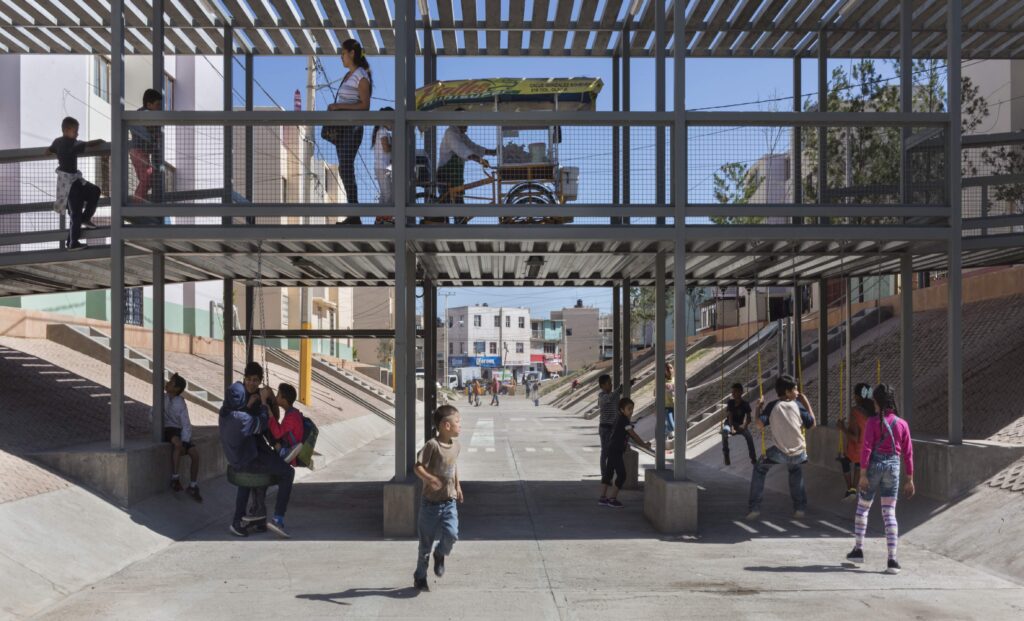
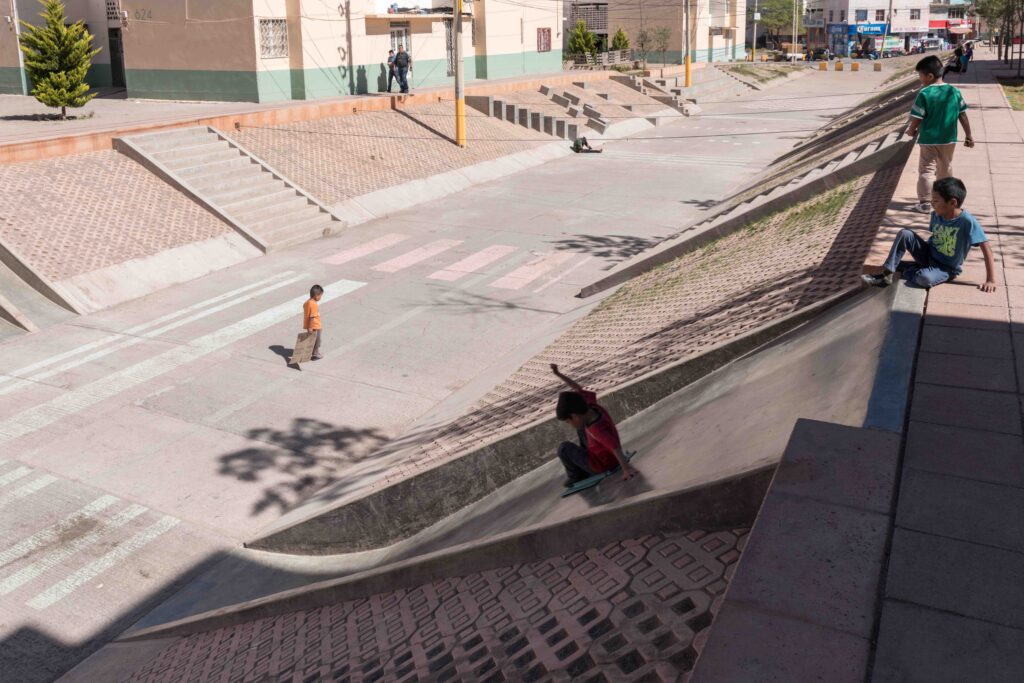
Rozana Montiel *1972, Architektin, Mexiko
Rozana Montiel sucht als Dozentin, Forscherin und Architektin nach Wegen, um mit einfachen Interventionen, Projekten oder Gebäuden städtische Gemeinschaft zu bilden und zu stärken. Dies macht sie insbesondere in nicht-privilegierten Vierteln mexikanischer Städte, indem sie den Ort analysiert, sein Potential einschätzt und die Bewohnerschaft einbezieht.
2012 formt die mexikanische Regierung eine breite Koalition von Ministerien und Organisationen, um gegen die ausufernden Städte und ihre enormen Infrastrukturprobleme zu kämpfen. Ein weiteres Ziel ist, die Wohnqualität auf allen Ebenen zu verbessern. Eine zentrale Rolle nimmt das staatlich subventionierte Institut Infonavit ein (Instituto
del Fondo Nacional de la Vivienda para los Trabajadores), das fast drei Viertel aller Hypotheken im sozialen Wohnungsbau vergibt. Infanovit untersucht in einer Studie die sozioökonomischen Bedingungen in 400 sozialen Wohnsiedlungen. Diese Studie dient als Grundlage, um Architekten mit entsprechenden Projekten zu beauftragen.
Rozana Montiel Estudio de Arquitectura setzt vier Projekte im Auftrag von Infonavit um: Saloncito (Mexico City) Común-unidad (Mexico City), Cancha (Veracruz) und Fresnillo Playground (Zacatecas). Dabei stützt sich Montiel auf die von ihr entwickelte Methode, die sie in der Publikation HU Common Spaces in Housing Units veröffentlicht. Es ist eine Art Glossar, um der vielschichtigen Realität der Sozialsiedlungen gerecht zu werden. Diese sind geprägt von informellen Nutzungen durch Straßenhändler, improvisierte Stände, Anbauten und der Verdrängung der Schwächeren aus dem öffentlichen Raum. Um die öffentlichen Räume für die Gemeinschaft zu erschließen, schafft sie Orte, wo öffentlicher und privater Raum ineinandergreifen.
Für Cancha (2016) konzipiert sie eine offene Turnhalle für sportliche Aktivitäten, aber auch als Begegnungsstätte. Zwischen die Säulen der Halle integriert sie ein multifunktionales Raumprogramm mit Bibliothek, Toiletten, Spielplatz, Hängematten und Gemeinschaftsräumen.
Für Común-unidad (2016) entfernt sie die Zäune, welche den Raum fragmentieren und unzugänglich machen. An deren Stelle entsteht ein großer Freiraum unter Bäumen, der anhand von horizontalen Gitterstrukturen neu geordnet wird. Gleichzeitig dienen diese als Spielmöglichkeiten und werden zum Treffpunkt für verschiedenste Nutzergruppen jeden Alters.
Für Fresnillo Playground (2017) verwandelt sie einen tristen Kanal, der das Quartier durchtrennt, in eine lebendige Begegnungsachse. Aus steilen Kanalwänden werden Rutschen, durch Treppen und Hüpfsteine entstehen neue Verbindungen und Bewegungsmöglichkeiten.
Excerps from Rozana Montiel: HU – Common Spaces in Housing Units, Arquine, Infonavit, Ciudad de Mexico 2018
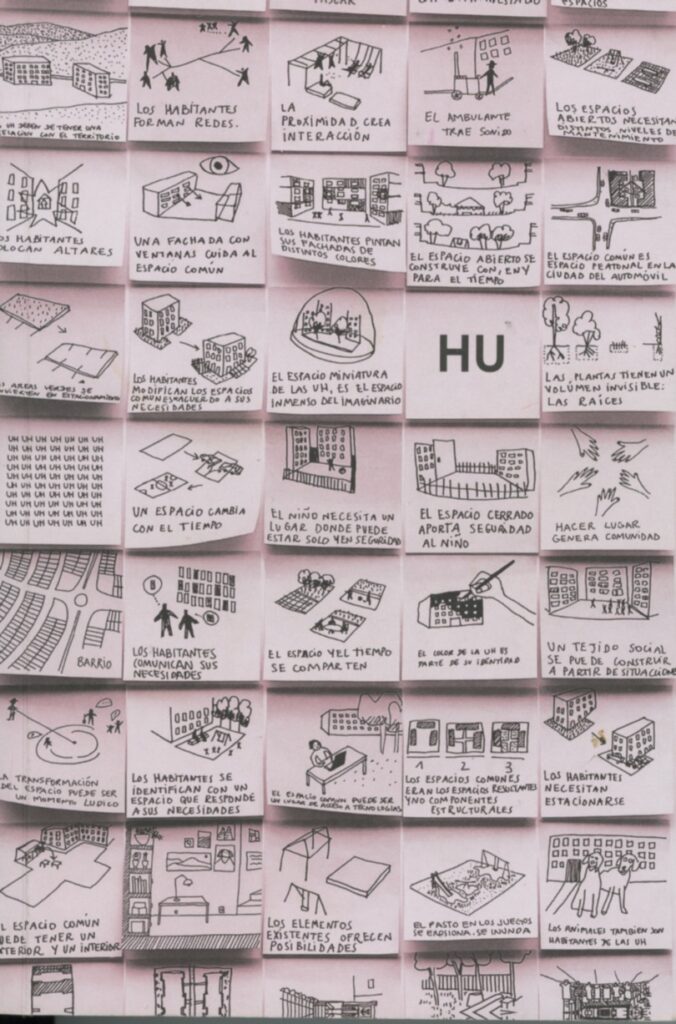
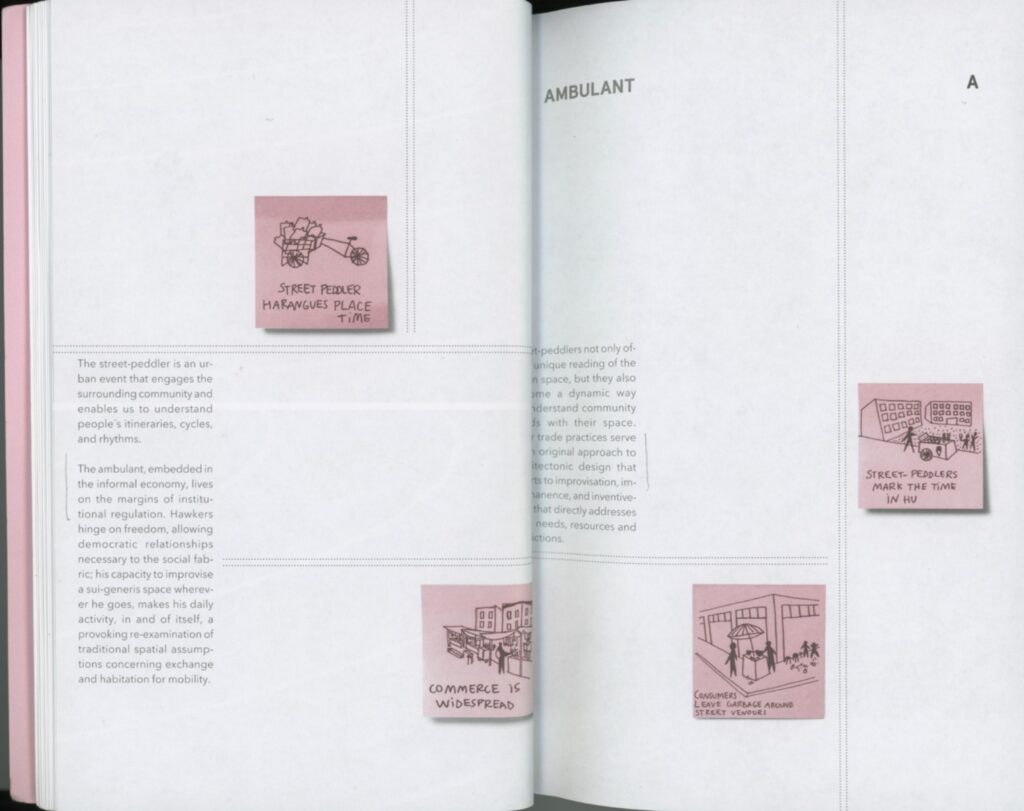
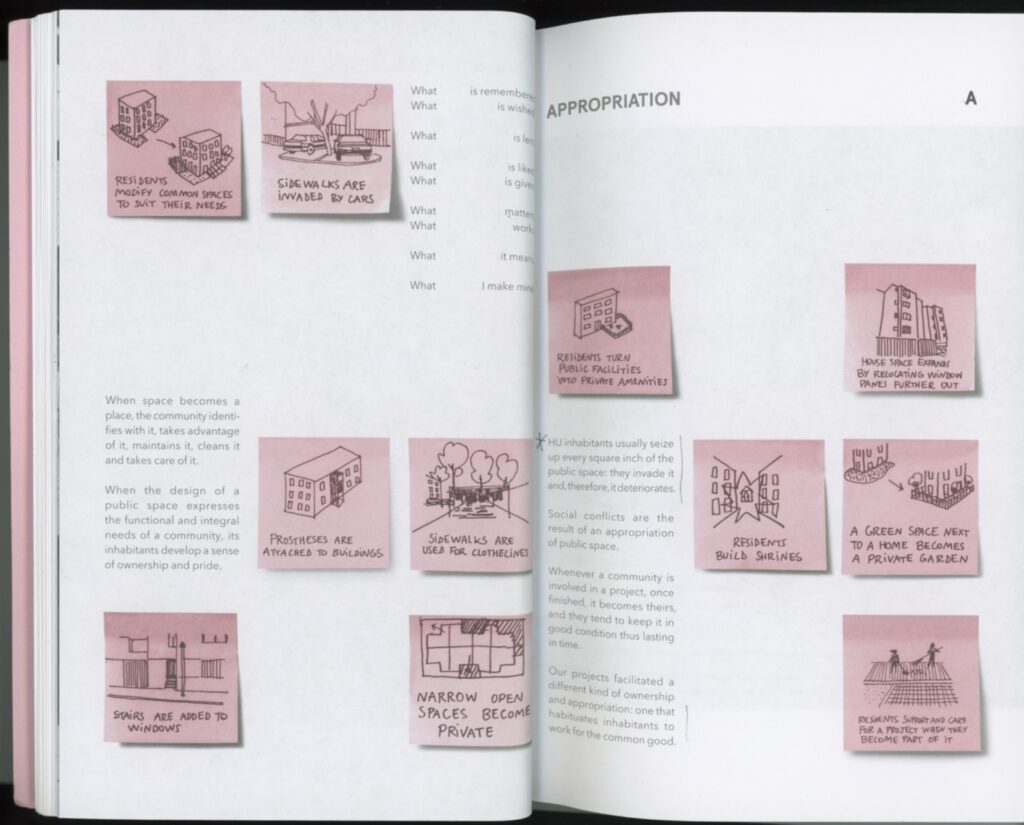
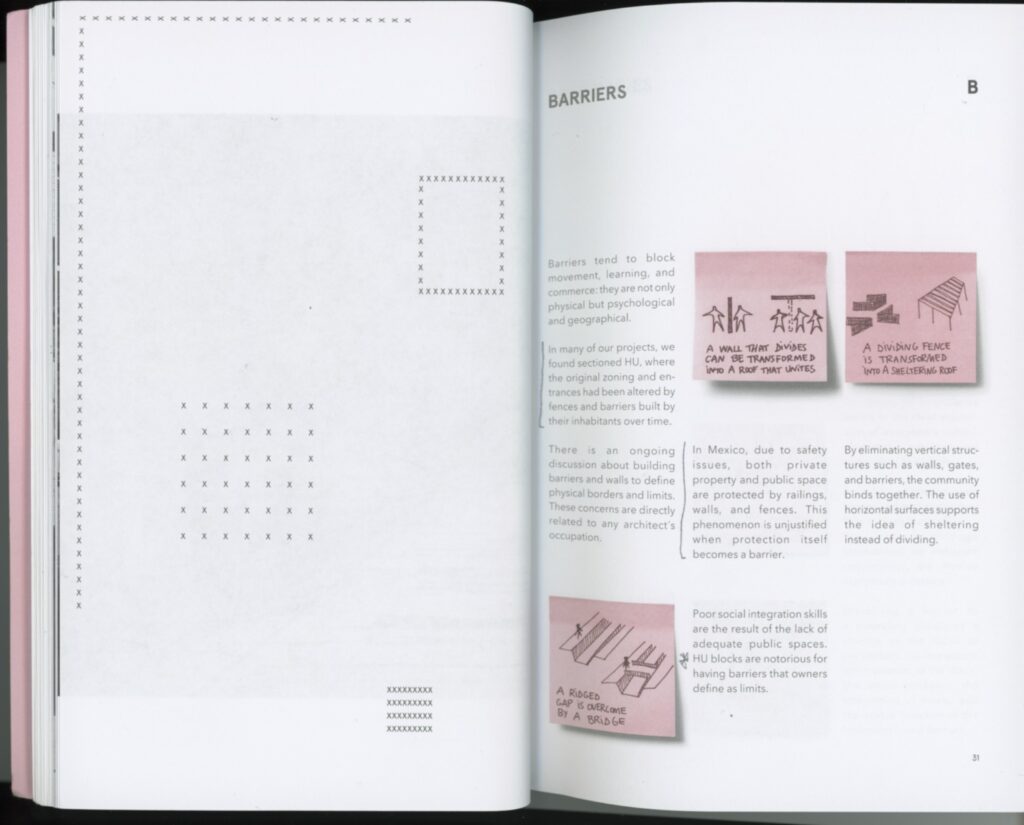
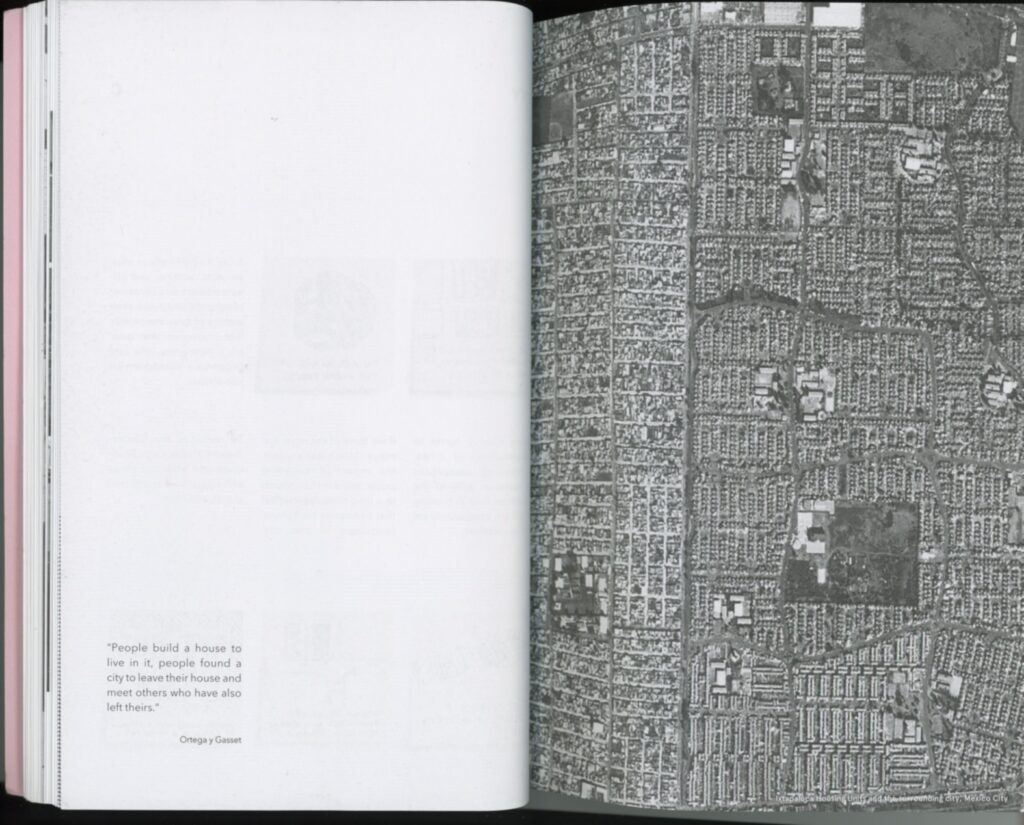
posted Mai 7, 2020